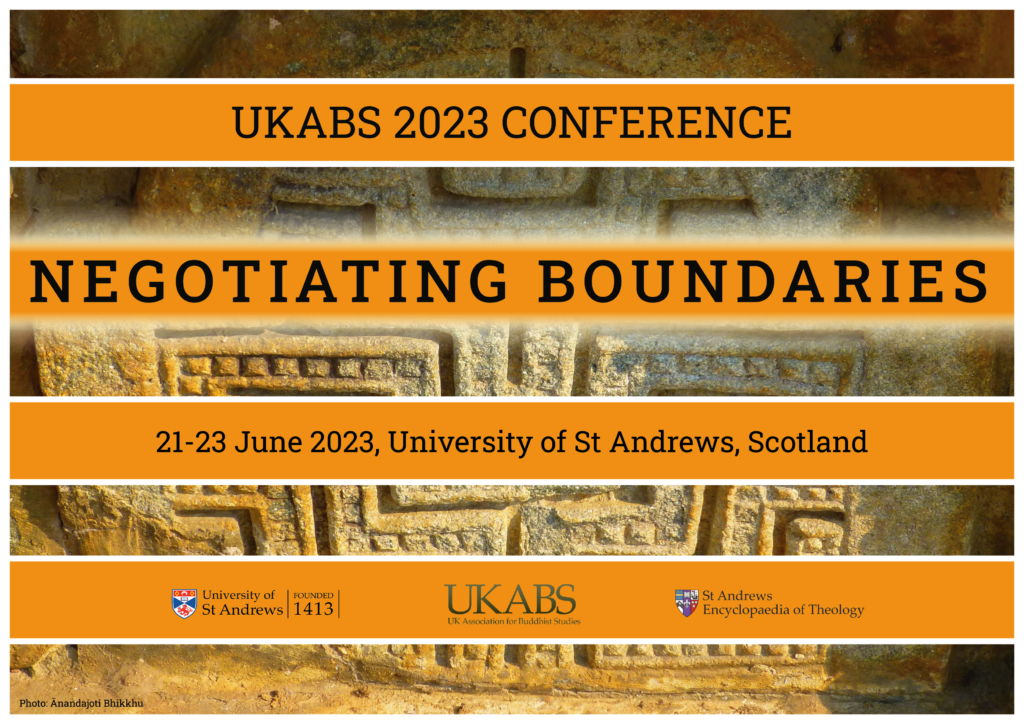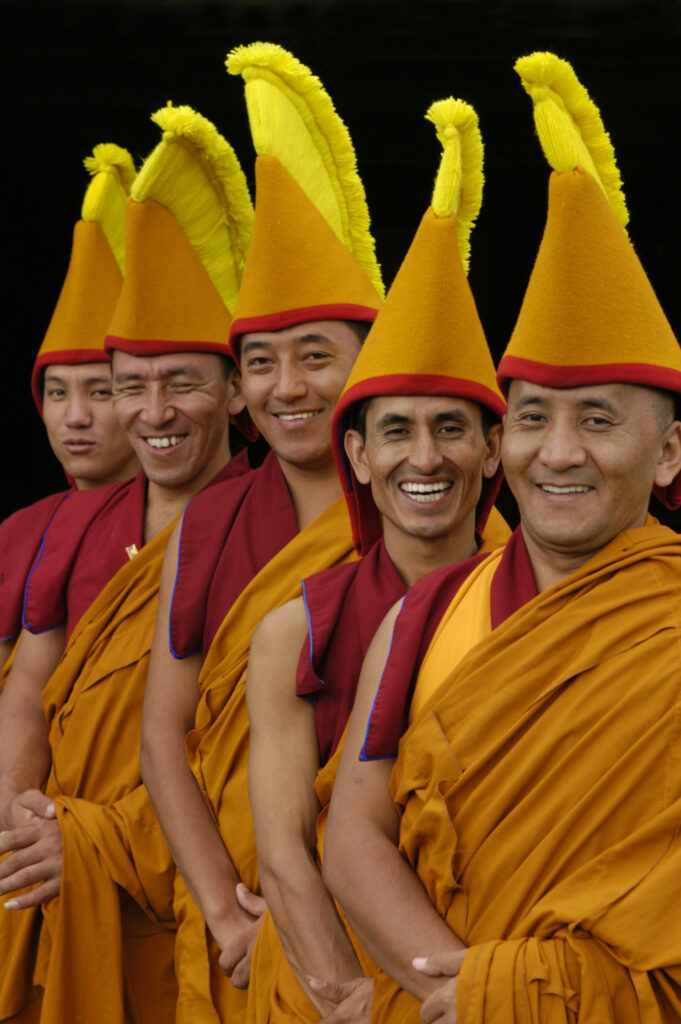
The UK Association for Buddhist Studies is pleased to announce that our annual conference for 2023 will take place at the University of St Andrews, Scotland, 21-23 June 2023. The conference is supported by the St Andrews Encyclopaedia of Theology.
Negotiating Boundaries in Buddhism and Buddhist Studies
Constructed boundaries divide one religion from another, one ethnic group from another, and define gender identities. Further, boundaries exist within many arenas of secular, social and professional life. Within academia, such firm boundaries exist between academics in different disciplines that two people working in the same field at the same institution can be completely unaware of one another. To a casual or uninvested observer, such boundaries can appear clear and solid; on closer inspection they are revealed as porous, complex, contested. For instance, there appears to be a clear boundary between lay and ordained Buddhists across different Buddhist traditions, but temporary ordination is common in some cultures, as is the taking of extra precepts by laity during retreat or on certain days of the month, and Vajrayāna yogis and yoginīs blur this distinction further. As well, cultural practices such as festivals can cut across boundaries between Buddhist and non-Buddhist groups in a society, and plural and hybrid identities problematise the very category of ‘Buddhist’. Converts to Buddhism face negotiating their new identity and adapting habits and behaviours. Theoretically, the concept of anatta challenges gender or sexuality as fixed categories, but inclusivity might not be played out in the lived experience of Buddhists. From student to professor, scholar-practitioners in Buddhist Studies continually hop across a boundary between critically distant academic and sympathetic insider. Furthermore, Buddhist Studies itself is not a limited good existing solely for its own sake, but has come to inform and be informed by a range of academic disciplines including law, business studies, neuroscience, peace studies, politics, and philosophy amongst others. In fact, Buddhist studies has previously imposed its own boundaries on various aspects of Buddhist tradition by the habit of taxonomy in its critical study: for example, the perceived divides between meditation and text, or text and ritual, and those imagined between artefact and embodied presence. Methodological and categorical insights from various disciplines may well contribute to the construction of new lines of demarcation, or facilitate the disruption of others.
For the conference, our aim is to explore a variety of boundaries including, but not limited to:
- Perceived boundaries between religious ‘insider’ and ‘outsider’
- Constructed boundaries between academic disciplines
- Contested boundaries between one religion and another
- Erected boundaries between those inside the academy and those outside
This conference welcomes papers that explore these boundaries. We would particularly welcome papers from academics who do not affiliate to Buddhist Studies but whose work is informed by Buddhist Studies.
The call for panels and proposals opens on 6 September and closes on 29 January 2023.
Types of submission:
- Short panel: Panel organisers are asked to submit a title and 300-word abstract on the panel and a list of potential panellists. Short panels are one hour long and should consist of three panellists who will each present 15 minute papers.
- Long panel: Panel organisers are asked to submit a title and 300-word abstract on the panel and a list of potential panellists. Long panels are two hours long and should consist of four panellists who will each present 20 minute papers.
- Paper submission: Individuals are invited to submit a title and 300-word abstract on a research paper. If accepted, the conference committee will organise these into panels.
Please send your submissions to: [email protected]
The call for panels and proposals is open to all academics, students and interested parties. The UK Association for Buddhist Studies also has a proud tradition of showcasing the work of up-and-coming research students, and a separate call for postgraduate panels will be advertised in due course.
Conference registration is now open and available via the University of St Andrews website.
The conference programme is available here. Please note that the programme will continue to be updated as necessary before the conference commences.
The conference will take place in St Salvator’s, one of the oldest remaining parts of the university, which is situated a few minutes walk from our well-known West Sands beach.
Conference events
The conference begins on Wednesday with registration throughout the day and the first event at 3.15pm. For those travelling the day before there is a Ceilidh the night before, that can be booked when you register for the conference. A Ceilidh, for those who do not know, is an evening of Scottish dancing (kilts optional!). On the first evening of the conference, there will be a play at the university’s Byre Theatre, by playwright Alan D. Wagner, ‘Lives of the Buddha: A Staged Reading of Early Chinese Buddhist Scriptures’. Tickets can be purchased as part of the online conference registration. Also, during the conference the university will be opening its collection of religious manuscripts for viewing. Over the whole course of the conference, Tibetan Tashi Lhunpo monks will be visiting and creating a sand mandala. This can be viewed any time by any delegate, and we will have the sand mandala closing ritual to conclude the conference. On Thursday evening the Tashi Lhunpo monks will also offer us a cham performance.
The conference organising committee is: Dr Elizabeth Harris (University of Birmingham), President of UKABS, Dr Nick Swann (University of South Wales), UKABS Secretary, Prof. Alice Collett (University of St Andrews) and Dr Nic Newton (University of St Andrews).






